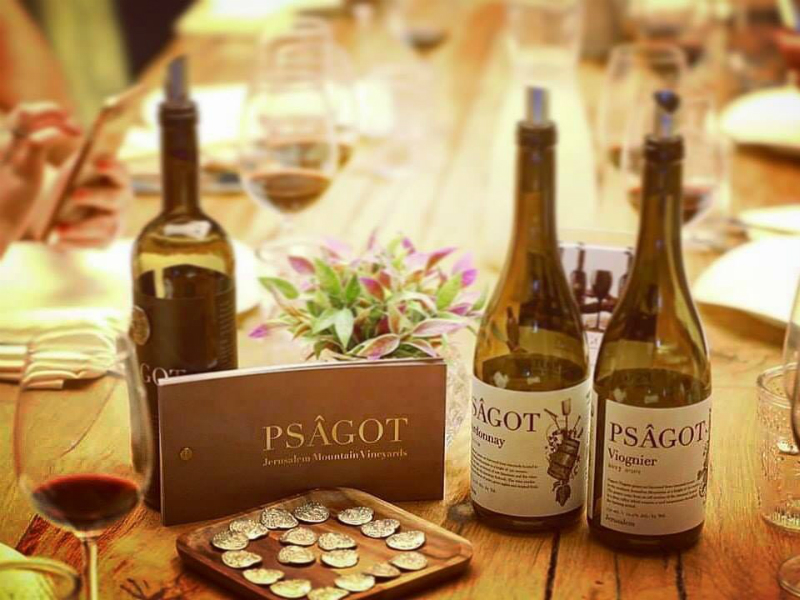The Israeli winery at the centre of a recent Canadian court decision says it will defy the ruling that wines from the West Bank cannot be labeled as a “Product of Israel.”
The other winemaker cited in the case says the decision contradicts long-held Canadian policy and law.
But their points may be moot: both Psagot and Shiloh wines are no longer available at Liquor Control Board of Ontario (LCBO) stores. Neither are they available in any other province.
According to the LCBO, both wines were part of the board’s vintages collection, which are purchased in limited quantities and not replenished once sold out. The last time products from those wineries were released in Ontario was in 2017.
In a bluntly worded ruling issued on July 29, the Federal Court of Canada found that labelling these and other wines made in the West Bank as a “Product of Israel” is “false, misleading and deceptive.”
The court granted the judicial review sought by David Kattenburg, a pro-Palestinian activist from Winnipeg who claimed that it’s fraudulent to label wine made in “illegal” Jewish settlements as a “Product of Israel,” because international law and Canadian policy do not recognize the West Bank as part of the Jewish state.
The court sent the case back to the Canadian Food Inspection Agency (CFIA), which must now decide how to proceed.
The case dates back to 2017, when the CFIA ordered the LCBO to pull wines from Psagot and Shiloh from shelves, then reversed itself and approved the wines for sale. That’s when Kattenburg took the matter to court.
READ: WEST BANK WINES CAN’T BE CALLED ISRAELI, COURT FINDS
The Shiloh winery, located in Ma’ale Levona, a West Bank settlement southeast of Ariel, “will continue to write ‘Made in Israel’ on every single bottle,” its winemaker, Amichai Lourie, told The CJN via email. “Shiloh is a part of Israel and we are very proud to produce Shiloh wines in what was the capital of Israel before Jerusalem and King David over 3,000 years ago,” Lourie said.
“If this means that Canada will not buy Shiloh wines, we will do without the Canadian market,” he added.
The Federal Court’s ruling “contradicts long-standing Canadian policy, statutory law and duly ratified trade agreements between Canada and Israel,” said Eli Sales of the Psagot winery, which is situated north of Jerusalem. “We’re confident this odd, aberrant decision will be overturned on appeal.”
On the bright side, Sales told The CJN, it’s important that the court did not rule on how products from Israeli territories should be labeled. Rather, “it issued a narrow opinion based on procedural issues that came up in the course of an individual lawsuit.”
He’s also “extremely pleased that the Canadian government argued forcefully against discriminatory labeling practices. Canada and Israel have long enjoyed a strong bilateral relationship based on shared valued and interests. One errant court decision will not change this fact.”
Meanwhile, Jewish organizations are calling on the government to appeal the case.
In a five-page letter to the lawyers for the government, David Matas, who represented B’nai Brith Canada before the court, asked for an appeal because the judgment “contains significant legal errors.”
Refusing to buy goods made by Jews “is patent discrimination,” Matas stated, and it would be “perverse” to interpret the Charter of Rights and Freedoms “to facilitate that discrimination.”
Refusing to buy goods made by Israeli Jews is also discrimination, Matas noted, and refusing to buy goods made by Israeli Jews working out of a particular location “is yet another form of discrimination against Jews.”
He said Shiloh and Psagot wines are produced “by Israeli citizens in territories legally under sole Israeli control. That control is both factual and legal. The Palestinian Authority agreed to that control under the Oslo II Agreement. It is not inaccurate or misleading to describe a product made by Israelis in territory, with agreement of the Palestinian Authority, under the sole control of Israel, to be labelled as a ‘Product of Israel.’ ”
The Centre for Israel and Jewish Affairs believes there were “substantive errors” in the court’s judgment.
“Current labelling practices are fully consistent with the Canada-Israel Free Trade Agreement, as well as Canadian and international law,” CIJA argued, adding that it will seek intervener status in an appeal.
The government “is carefully reviewing” the court’s ruling and has until Sept. 30 to decide whether to appeal, said Brian Naud, a spokesperson for the CFIA.
